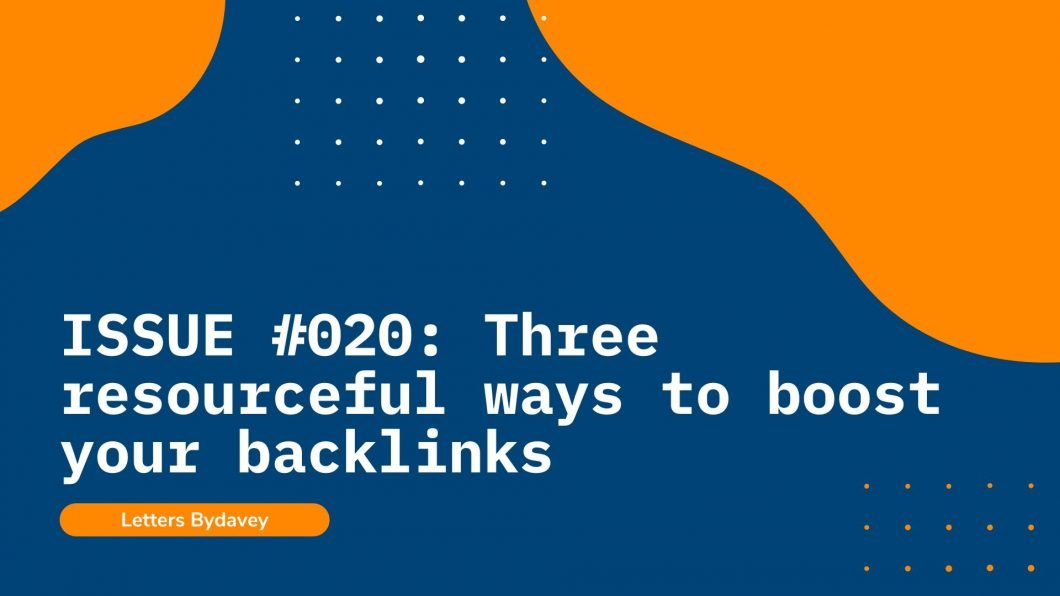Table of Contents
TL;DR & Summary
When it comes to building links for your website, many people are making the same mistakes.
Most of the time, it’s because they don’t understand the process and when the right time is to start building links.
But if you understand when to start building links and how to do it right, it can benefit your website’s SEO and drive more traffic to your site.
You see, the world of SEO is constantly changing and what worked in the past may not work today.
It’s important to stay current and understand the latest trends to leverage the benefits they provide. But don’t worry, this is within your reach.
By the end of this article, you will be able to:
- Understand the importance of building links for your website
- Identify the right time to start building links
- Learn how to correctly build links for your website
The enemy that we need to overcome here is the misconceptions and lack of understanding of when and how to build links for your website.
If you don’t take action and build links for your website, it could greatly harm your search engine rankings and traffic.
Building links can help improve your website’s SEO, increase its authority, and drive more traffic to your site.
But many people struggle with understanding when to start building links and how to do it correctly.
Here are a few reasons why people don’t build links for their websites:
- They don’t understand the process
- They don’t know when the right time is to start
- They think it’s too time-consuming
- They are worried about building links the wrong way
But don’t let these struggles hold you back. You can overcome them by understanding the importance and benefits of building links. Also, identify the right time to start, and learn how to build links for your website.
The first and most important step in building links is to understand the importance of high-quality links.
These are links that come from reputable and authoritative websites that are relevant to your niche.
These links tell search engines that your content is valuable and trustworthy.
To illustrate this, imagine you have a cooking website and you have a link from a well-known chef’s website. This link signals to search engines that your website is a reputable source for cooking information.
Never build random links. NEVER!
It’s a process that takes time and effort, but with the correct understanding and approach, you can achieve your desired results.
Step 1: Leverage broken link building
Find broken links on other websites related to your niche, and then create a similar or improved piece of content to replace the broken link.
Contact the website owner and ask them to replace the broken link with a link to your created content. This is a great way to get high-quality links and add value to other websites at the same time.
For example, you run a gardening website and you find that a popular gardening blog has a broken link to an article about growing tomatoes.
You can reach out to the blog owner, inform them about the broken link and offer your article as a replacement. In return, they will link your article on their blog and your website will get a high-quality link.
Step 2: Use link reclamation
Check your website analytics and see if any of your own content has been linked to other websites without you being aware of it.
Ask the website owner to update the link pointing to your website. They can also include more context or information about your content. This can help you get more high-quality links for your website.
For example, you run an online fashion shop and you notice that a fashion forum has linked to one of your product pages.
But the link is pointing to an old version of the page that no longer exists.
You can ask them to update the link to point to the current version of your product page, which will bring visitors and link juice to your website.
Step 3: Create a resource page
Creating a resource page on your website that links to other valuable resources on the web can help attract backlinks to your website.
Create a page that lists resources like articles, ebooks, tools, etc that your target audience would find valuable.
Reach out to the creators of those resources and let them know about your page, and ask if they’d be willing to link to it from their own website.
For example, if you run a website that sells outdoor equipment, you can create a resource page on your website that lists the best hiking trails in the area.
Then you reach out to the managers of those trails and inform them about your resource page, asking them to include a link to your page on their website.
As a result, you will get links and your target audience will find your page useful.
If you’re looking forward to winning online, here’s how I can help:
- Sit with you 1-on-1 & create a content marketing strategy for your startup. Hire me for paid consulting.
- Write blogs, social posts, and emails for you. Get in touch here with queries (Please mention you found this email in the newsletter to get noticed quickly)
- Join my tribe on Twitter where I share SEO tips (every single day) & teaser of the next issue of Letters ByDavey.

